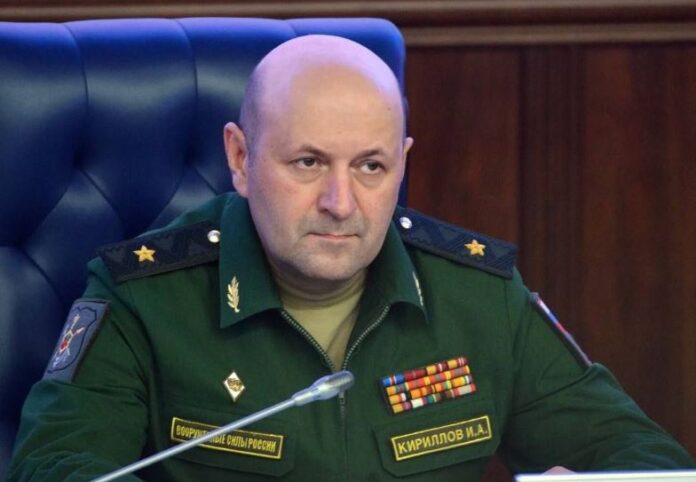Ukraine’s Security Service (SBU) is suspected of being behind the assassination of Lieutenant General Igor Kirillov, the head of Russia’s Radiological, Chemical, and Biological Defense Unit. The attack took place in Moscow, where a bomb, reportedly attached to a scooter, detonated near the entrance of an apartment building, killing Kirillov and his assistant.
Ukrainian officials have openly acknowledged their involvement, with one official branding Kirillov a “war criminal” and stating he was a “legitimate target.” This acknowledgment comes in the wake of Kirillov being charged by Ukraine for alleged chemical war crimes, a claim that adds layers of complexity to the already tense international situation.
This incident has sparked widespread discussion due to the high-profile nature of the target and the ongoing allegations of chemical warfare. The assassination method and the timing, right after the charges against Kirillov, suggest a calculated move by Ukrainian intelligence, although no official claim has been made by Ukraine’s government or its security apparatus.
The implications of this event are significant, potentially escalating tensions between the two nations and affecting the diplomatic landscape. The international community watches closely as this could influence the trajectory of peace negotiations or further military actions in the region.
Lieutenant General Igor Kirillov Killed in Moscow Explosion
In a shocking event early on December 17, 2024, Lieutenant General Igor Kirillov, the head of Russia’s Nuclear, Biological, and Chemical (NBC) Protection Troops, was assassinated in Moscow. The attack occurred outside an apartment building on Ryazansky Prospekt when an explosive device, hidden in an electric scooter, was detonated remotely. This assassination not only took the life of Kirillov but also his assistant, highlighting the dangerous and volatile nature of current geopolitical tensions.
Background on Igor Kirillov: Born on July 13, 1970, in Kostroma, Russia, Kirillov had an extensive military career, having joined the Soviet Armed Forces in 1987. His career path saw him rise through the ranks, notably serving in Germany with the Western Group of Forces and later in the Moscow Military District. Since 2017, he had been leading the NBC Protection Troops, a critical role given the increasing concerns over chemical and biological threats in modern warfare.



